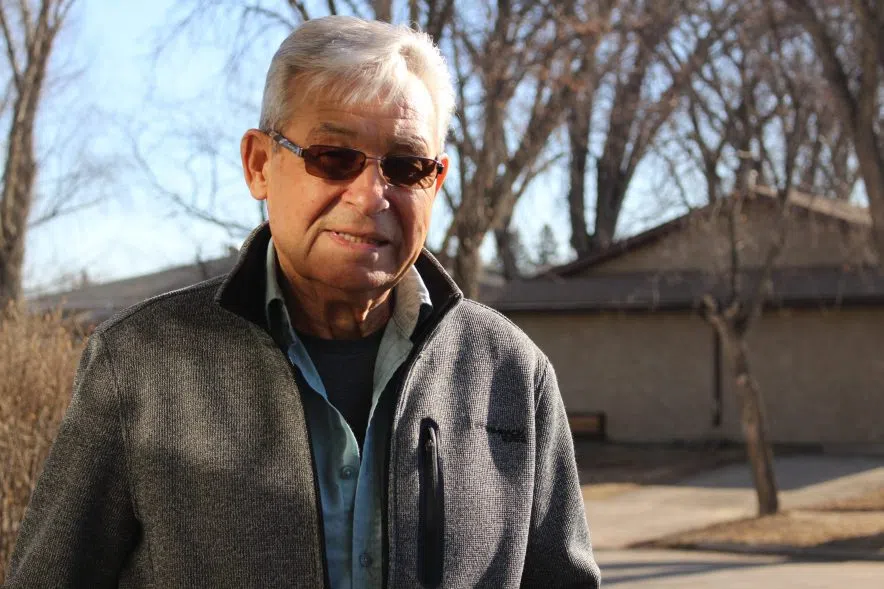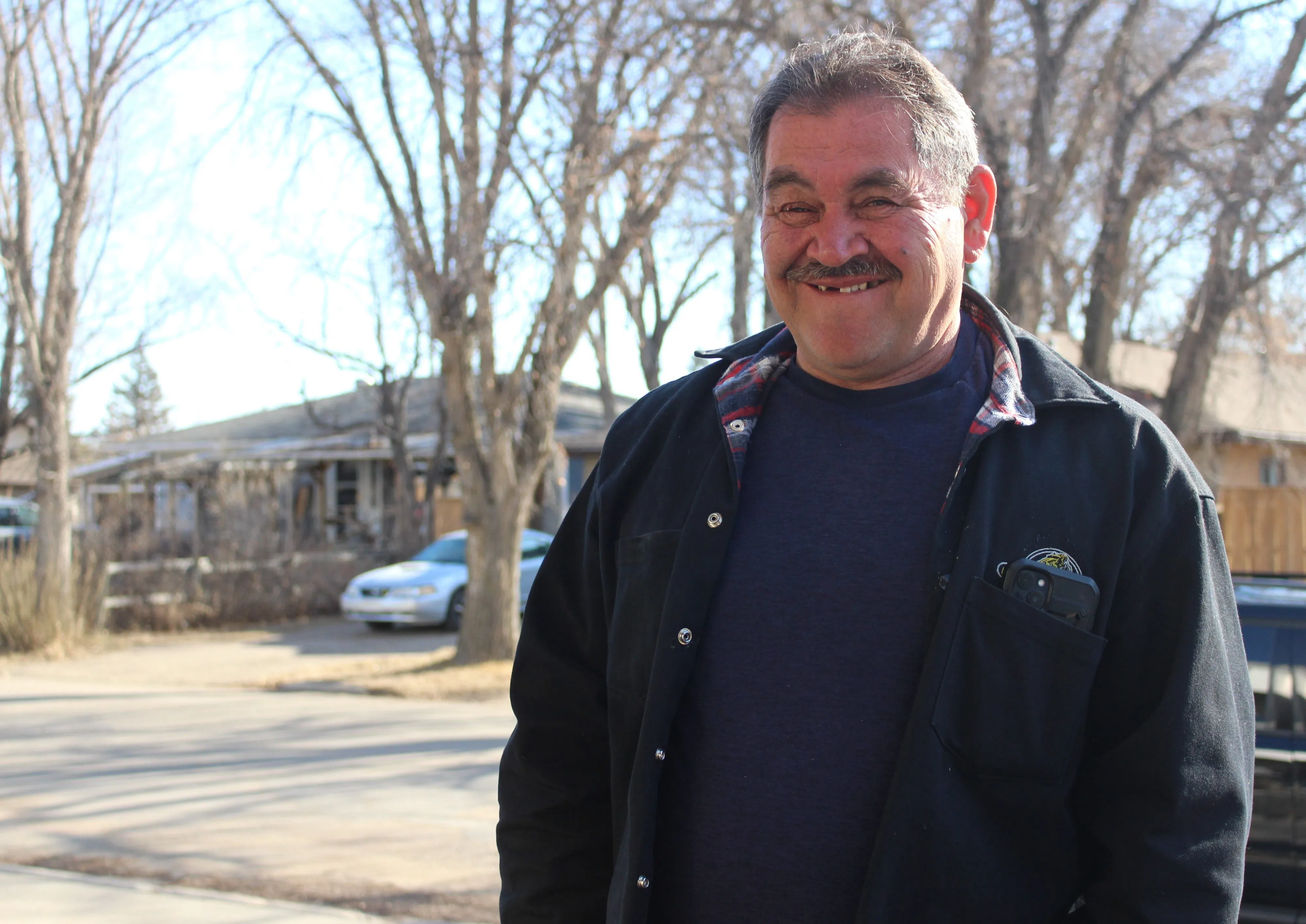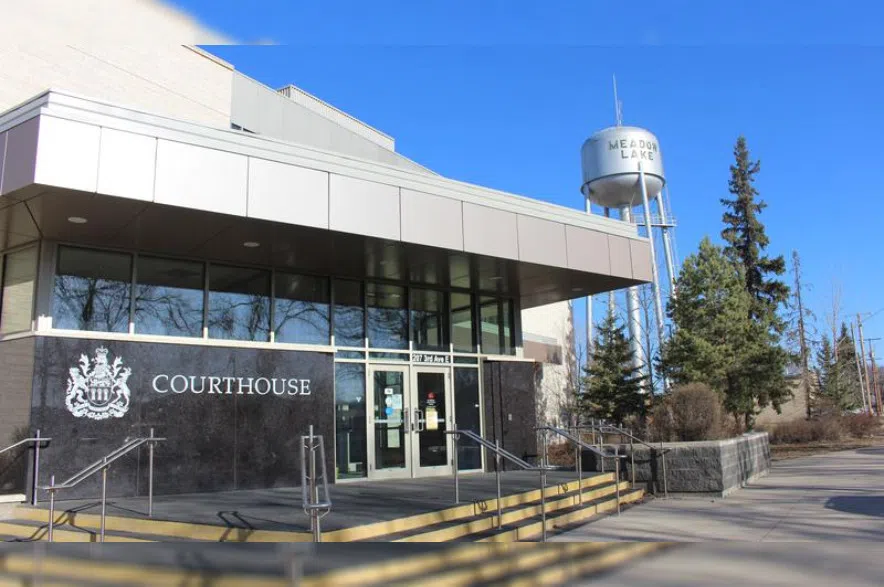Chartrand, a longtime politician and activist, had been speaking at length about what it was like to grow up poor in Duck Bay, MB, where it was a hard life but one he cherished. When his testimony veered into the political realm, Fyfe asked the court, presided over by Judge Bryce Pashovitz, what the relevance was and asked that Chartrand keep to the task at hand. However, Defence Counsel Kathy Hodgeson-Smith rebutted that Chartrand’s testimony – all of it – went to the heart of the case, which is: who are the Métis, how do they govern themselves, what are their customs, where is that homeland and how do they relate to it.
“This is the story of the Métis. This is the Métis people speaking about who they are,” she said. “I’m not sure what this case would be about if it wasn’t about who the Métis people are, who they think they are, what their relationship is to the land and resources.”

Oliver Poitras. (meadowlakeNOW)
He said others worked as freighters who carted goods.
“Their work took place on established trails,” he said, adding they didn’t go into the bush.
“Their job was to transport goods, not harvest animals.”
During Hodgson-Smith’s opening, she spoke of this case as a “trial afresh” for all three defendants.
“Aboriginal rights are derived from Indigenous people’s occupation of their traditional lands prior to effective Crown control,” said Hodgson-Smith.
Referring to a previous case file, the defence quoted that when settlers arrived, Indigenous societies had already been there for centuries.
“Recognition of Section 35 rights is an act of reconciliation. The goal of the honour of the Crown is reconciliation.”
In preparing the court for what’s to come, the lawyer said community witnesses from across western Canada will be called upon to recount their upbringing, kin, traditions, cultural celebrations and identity.
“Evidence of cultural similarity will be in both the historic context and the modern one,” she said.
“The cultural realities that bind the Métis people together do not fray because the modern use of the traditional territory has diminished… that the modern Métis people continue to be highly mobile and continue to move throughout the traditional territory of their ancestors.”
During his time on the stand, the court learned that Chartrand was raised by a single mother along with his seven other siblings and though they grew up poor, they lived a “solid, unified life” as a family.
“We actually lived off the land a lot. I started hunting when I was very young; all of us did,” Chartrand said.
The MMF president said in addition to hunting and fishing, they also had a garden and without living off the land, they would’ve often been hungry.
“In our culture, everything’s shared. So, when we go out to hunt and harvest, whether we kill a deer or a moose, it’s shared amongst the entire families.”
As his testimony progressed, it spanned the breadth of how the community and culture worked and how, regardless of where the Métis people are, there are commonalities throughout the traditional lands – which stretched from Manitoba to the Rockies.

Alcott Creek, about an hour east of Meadow Lake, is one of the locations where the defendants were harvesting. (meadowlakeNOW)
“We just knew each other…like even here, Your Honour, I wore this vest to respect this court,” he said, referring to the beaded story of his life that covered the front and back of the tan garment.
“It’s not just a bunch of fancy colours, this is done by an expert that made this vest. In front is the story of me – you’ll see a lot of different things in the front; in the back is the story of my mom.”
As other cultures like the Scottish Highlanders could tell which clan a person belonged to based on their tartan, so too did the vests act as identifiers.
“Our people throughout history, go back as far as you want, used to know each other just by looking at the beadwork – who you were, where you belong, where you live.”
During the roughly five-hour-long testimony, Chartrand explained as a government, the MMF is not only extremely rigorous and strict with citizenship, but they are also strict with hunting laws and said conservation is fundamental. Last year, the Canadian government and the MMF signed a treaty. Chartrand said now the word is getting out that the borders across the prairies no longer apply and people are finding their way home.
“There’s already 4,000 citizens that have applied for a citizenship card that don’t live in Manitoba,” he said.
On cross-examination, Fyfe asked the witness to recount his hunting background. Chartrand said he began hunting at the age of eight and got his first rifle in his late teens.
When asked about how many of the citizens hunt, Chartrand was blunt: Hunting is on the decline.
“Harvesting is something that is more treasured in our culture,” he said.
“Some of our citizens get cards — harvesting cards — just for pride. They don’t go hunting but say — ‘I have the right to hunt, I have the right to harvest and feed my family.’”











